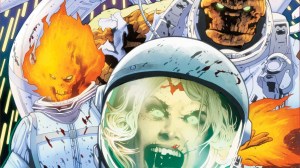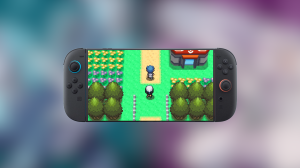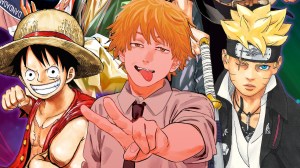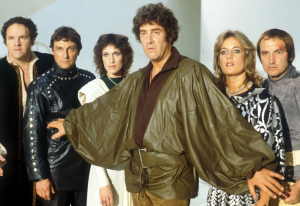Zombies are one of the most popular monsters in all of fiction, with countless movies, TV shows, video games, comics, and books presenting unique versions of the undead. There’s just something so scary about seeing loved ones or a crowd of people turn into rotting and mindless cannibals hellbent on consuming everything in their path. Naturally, in 2005, Marvel launched the Marvel Zombies franchise, set in an alternate universe where the company’s most iconic heroes and villains transform into flesh-eating zombies. The series was a massive hit and spawned several sequels, as well as an upcoming Marvel Cinematic Universe animated mini-series adaptation. Eventually, in 2019, DC Comics created their own version of an alternate universe zombie apocalypse series, called DCeased, which also became a major hit, generating several sequels. While both storylines explore the concept of a zombie-infested universe populated with undead superheroes, DCeased is a more coherent, chilling, and ambitious series that effectively understands the zombie genre.
Videos by ComicBook.com
The setups for the two stories are pretty different, but they yield similar results. In Marvel Zombies, the outbreak begins when a zombified version of the superhero Sentry crash-lands in New York City, where he quickly bites and infects Earth’s Mightiest Heroes. With their abilities and intelligence still intact, but their morality gone, the zombified heroes eat and infect everyone that crosses their path. In the world of DCeased, the zombie outbreak is accidentally triggered by Darkseid’s attempt to harness the Anti-Life Equation, which would bend all life in the universe to his will. However, while trying to extract and harness the Anti-Life Equation from the hero Cyborg’s body, Darkseid gets his math wrong and unleashes a deadly techno-organic virus. Cyborg is hastily sent to Earth, where he accidentally emits the virus through the internet and infects billions of people at once, turning them into hate-filled zombies.
Marvel Zombies had a Good Start, but Fell Flat
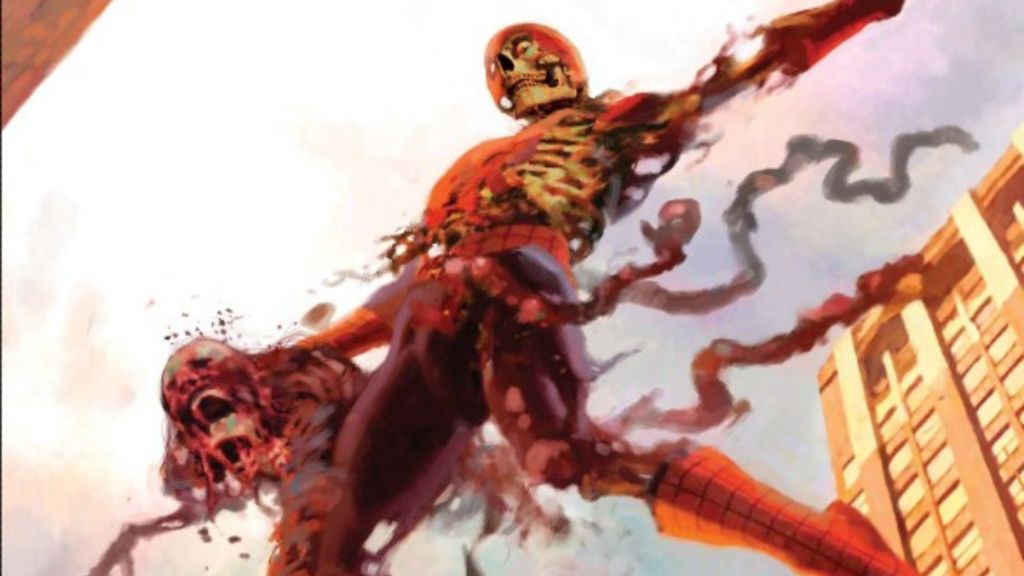
The initial Marvel Zombies storyline, written by Robert Kirkman, was an intriguing and unique spin on the zombie genre. Part of what made it so unique was that, although it created some limitations down the road, it told the stories primarily from the point of view of the zombies, not the uninfected survivors. While the virus caused those infected to rot and become overwhelmed with the urge to feed on flesh, the zombies still maintained some semblance of their cognitive abilities. Despite their decaying condition, they remained capable of speaking, strategizing, and using their superpowers to their utmost capacity. With their intelligence and power, the zombies quickly overwhelmed the planet, leaving next to no survivors. Things only got worse when the superpowered zombies ate the Silver Surfer, thereby enabling them to harness the Power Cosmic to spread their infection across the universe. Given the macabre nature of the story, Marvel does a good job mixing gory and hopeless horror with over-the-top gallows humor.
However, after Kirkman left Marvel Comics, the Marvel Zombies franchise quickly began to overstay its welcome. With every passing expansion, the story became more repetitive and convoluted. While the idea of presenting the narrative from the zombies’ point of view was initially intriguing, it became increasingly dull over time since it allowed for no character development or human interest. Aside from a few select characters like Spider-Man, who sporadically felt guilt for eating people, the only thing all the other protagonists ever do is talk about their hunger. Moreover, among the very few survivors who remained, it was hard to get attached to them because they always got infected. Whenever it appears that a character may have a convincing and satisfying character arc, they are either consumed or revert to obsessing over consuming others. Adding to the tedium, by the time of Marvel Zombies Return, it seems that Marvel Zombies is in a permanent rewind: while a few of the zombified heroes go to another universe, it is almost identical to their first universe, where they more or less repeat all the things they did the first-time round. Eventually, readers grew tired of the endless and fruitless attempts at shock value and black comedy. Marvel Zombies had an incredible start, but they fizzled out. It would have been far better if it had stayed as a self-contained mini-series.
DCeased Used Its Universe Much Better Than Marvel Zombies Did
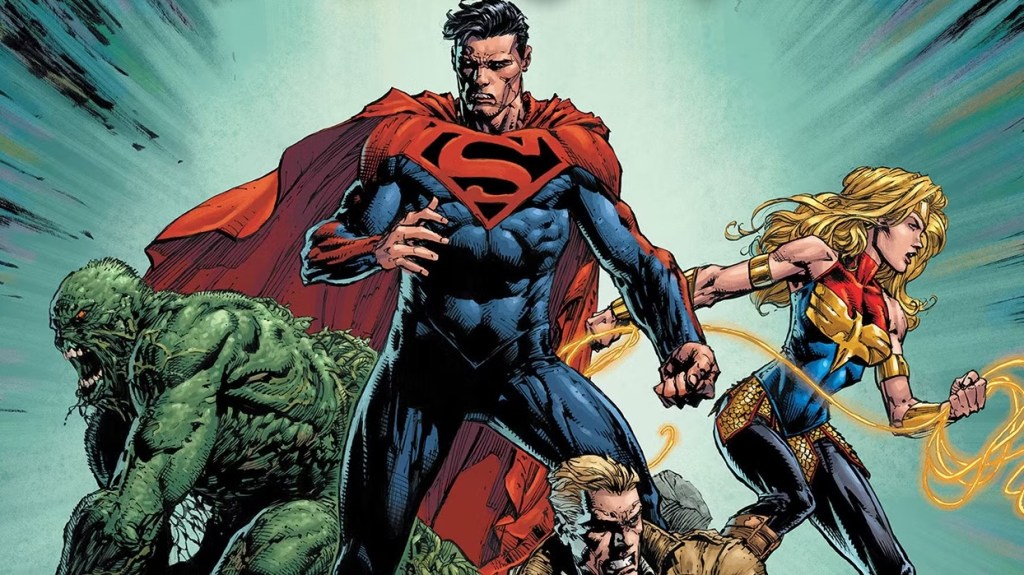
One of the significant ways DCeased improved on Marvel Zombies’ original concept is by fully leveraging the DC Universe setting. A substantial issue with Marvel Zombies is that it doesn’t feel like it takes place within the Marvel Universe. Within the first issue, almost every single renowned Marvel superhero and villain is already turned into undead cannibals, with practically all of their efforts at resistance immediately, and unrealistically, thwarted within a matter of hours. With everyone as zombies virtually out of the gate, Marvel fails to capitalize on the potential for mayhem and thrilling plot lines that a zombie apocalypse could bring to the Marvel Universe. Even when the zombies absorb the Power Cosmic, far from leading to any dramatic conflicts or events, they mostly use it to fly around and shoot energy beams.
In great contrast to how Marvel Zombies misses the mark, DCeased, takes advantage of the DC Universe and its superheroes to add interest and tension to the zombie invasion. Smartly, DCeased features recognizable DC characters undergoing drastic changes to adapt and survive the zombie apocalypse, which are both believable and creative. For example, after Hal Jordan becomes a zombie and is killed by Black Canary, his ring goes to her, with the result that she becomes the new Green Lantern. Other examples include the second Batgirl, Cassandra Cain, inheriting the power of Shazam after obtaining the wizard’s staff; Poison Ivy using her plants to create a sanctuary for survivors; and Alfred becoming the new Spectre after the original dies fighting zombified New Gods. Additionally, after the initial outbreak, many of the younger survivors, like Jon Kent and Damian Wayne, assume their parents’ mantles, thereby reinforcing the essential theme of legacy in DC Comics. There are also clear character arcs, with heroes and villains developing in perhaps surprising ways, yet in ways that feel faithful to their mainline counterparts. For instance, some of DC’s most notorious villains, like Cheetah, Bane, and Darkseid, have credible arcs as they ally with heroes to fight a common enemy.
The superheroes-turned-zombies in DCeased are also much more varied and menacing than those of Marvel Zombies. We witness a zombified Plastic Man morph into a ravenous, liquid, oceanic monstrosity, while the Flash dashes across the globe to infect as many people as possible. Moments—and grotesque transformations—like these, which play off the powers of the original superheroes, help create a chilling view of what could happen if a zombie outbreak were to occur in the DC Universe. Even when DCeased’s sequels came out, they were successful because they continuously, and faithfully, expanded on the foundations of the DC Universe. Whereas Marvel Zombies feels like an excuse to show superheroes eating people, DCeased presents a fully-realized, evolving universe, that develops entertaining and plausible storylines which uniquely alter and extend the DC Universe.
DCeased Feels Like a Real Zombie Apocalypse Story
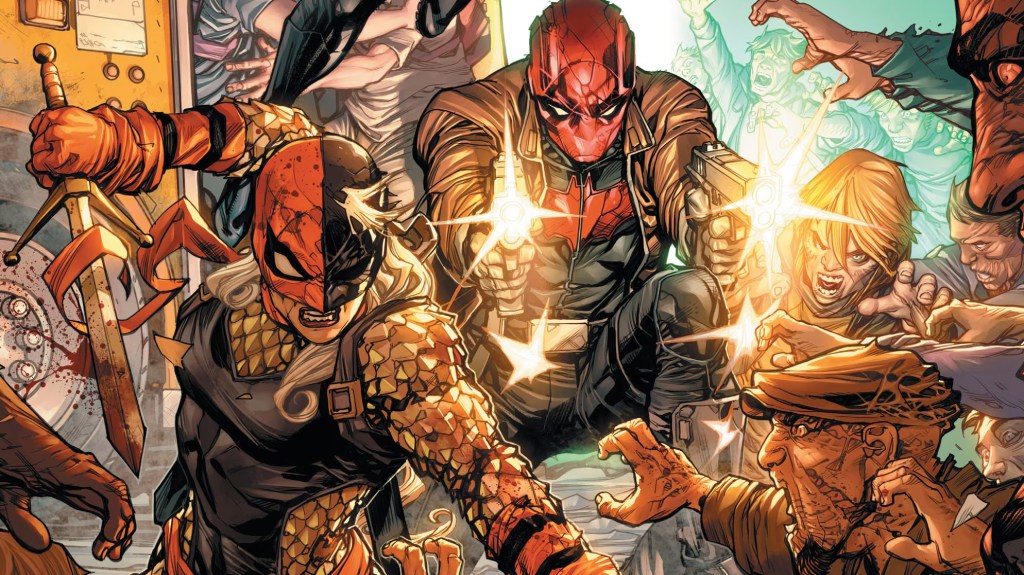
Ultimately, what makes DCeased superior to Marvel Zombies is its thorough understanding of the zombie genre. The original concept behind Marvel Zombies – undead heroes using their personal knowledge to prey on the weakness of their loved ones – was a goldmine of psychological horror waiting to be unearthed. Yet, instead of pursuing that subversive and spine-chilling potential, later stories shifted to stale, gross-out humor. Taking a very different approach, DC portrays the infected as a terrifying, near-unstoppable horde. In addition, rather than having almost all the main characters zombified in the first two issues, DCeased takes a slower, more deliberate approach – eliminating heroes one by one over time. This slower approach creates more tension as it keeps the reader constantly guessing who will fall next. Another key aspect of DC’s success is that, when a character becomes infected in DCeased, DC creates a more emotional connection with the victims by portraying the fear of the recently infected individuals and those around them. Consequently, while Marvel Zombies ends up feeling more like an edgy, dark comedy without any sense of stakes, DCeased depicts a much more intense, complex world with human dimensions, where it always feels like a primal clash between the living and the dead.
Zombie classics like The Walking Dead and Train to Busan demonstrate that it’s not just the zombies that make the story engaging: it’s the survivors. Reading about zombies eating and infecting people can be fun. However, as Marvel Zombies shows, it can get old pretty quickly, especially when anyone you care about dies almost immediately. That’s why all major zombie media focuses on the challenges and tragedy of living protagonists, as they try to survive a world overrun with the undead. In DCeased, DC deftly heightens tensions and empathy by focusing on the survivors of the initial zombie outbreak and allowing fans to experience the world, not through the eyes of the zombies, but through the eyes of some of DC’s most beloved heroes. You feel the weight and the loss as these characters watch their world burn and their loved ones turn into mindless monsters. In Marvel Zombies, you are much less involved because the world’s most intelligent people either give up on finding a cure or are instantly infected. In DCeased, we root for the embattled heroes as we see the lengths they are willing to go to find a cure. And, when they discover a cure, we share their urgency as they do everything they can to distribute it to as many people as possible. So, let’s face it: DC gets it, and Marvel doesn’t. By focusing on the non-infected, DC showcased its understanding of what makes the zombie genre so great — humanity’s will to survive in the face of Armageddon.
Want to stay up to date on the biggest geek entertainment news? Add us as a prefer source in Google – HERE.

